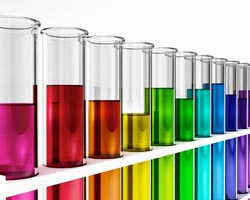
Body pH Can Affect Your Energy, Digestion & Health

If you have heard of pH value, acidity, and alkalinity, have you ever wondered what is your own body pH?
The consumption of too little water is a common source of weakness and fatigue. Drinking water will perk you up just as a wilted flower perk up in the water. To understand how water can help give you a midday boost...all you have to do is understand how your body's pH level works.
But let’s have a quick overview of pH. PH is a scale that measures how acidic or alkaline a substance is. The scale ranges from 1 to 14 with 1 being very acid, 7 neutral, and 14 very alkaline. So what does pH have to do with you and your blood? Well, the pH of your blood is extremely important. The ideal pH level for your blood is right around 7.35 and your body goes to enormous lengths to maintain this level. Why? Because if your blood pH were to vary 1 or 2 points in either direction, it would change the electrical chemistry in your body, there would be no electrical power and in short order, you would drop dead. As you can see, maintaining the right pH level in your blood is pretty important!
With this in mind, a good way to avoid upsetting this delicate biochemical balance would be to take a look at those things that can compromise the maintenance of the ideal pH level in your body. And what is the main culprit in this case? The answer is the creation of acid in your body. Before we look at what causes acid, here's a graphic example to give you an idea of what can happen in the blood when your pH drops to less than ideal. Red blood cells are how oxygen is transported to all the cells in your body. As red blood cells move into the tiny, little, capillaries, the space they have to move through gets pretty small. In fact, the diameter of the capillaries gets so small that the red blood cells sometimes have to pass through these capillaries one red blood cell at a time!
Because of this, and because it's important for the red blood cells to be able to flow easily and quickly through your body, they have a mechanism that allows them to remain separate from each other. This mechanism comes in the form of the outside of healthy red blood cells having a negative charge. This causes them to stay apart from each other, sort of like when you try to push the negative ends of two magnets together. They resist each other and stay apart.
Unfortunately, acid interferes with this very important mechanism in a pretty frightening way. Acid actually strips away the negative charge from red blood cells. The result is that your red blood cells then tend to clump together and not flow as easily. This makes it much more difficult for them to flow easily through the bloodstream. But it also makes it harder for them to move freely through those small capillaries. This means less oxygen gets to your cells. Acid also weakens the red blood cells and they begin to die. And guess what they release into your system when they die? More acid. I could describe a whole list of processes that occur when your system becomes and remains acid but I think you get the idea.

